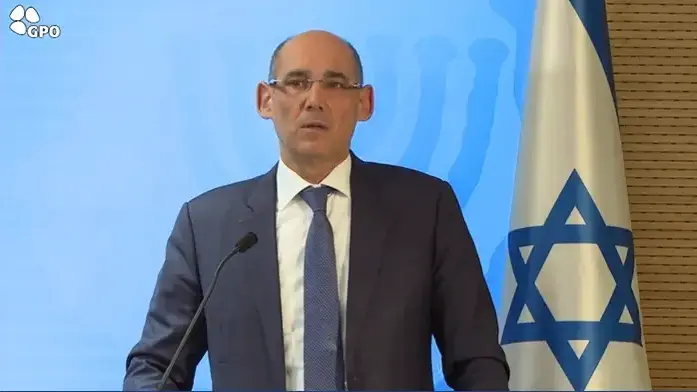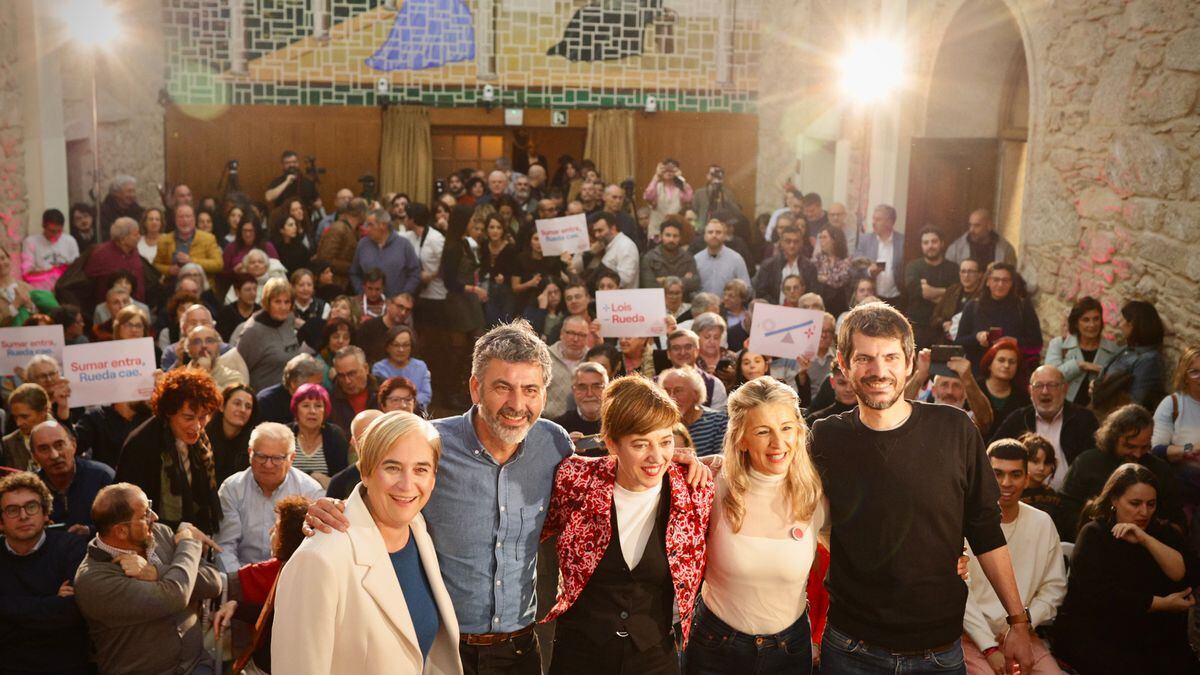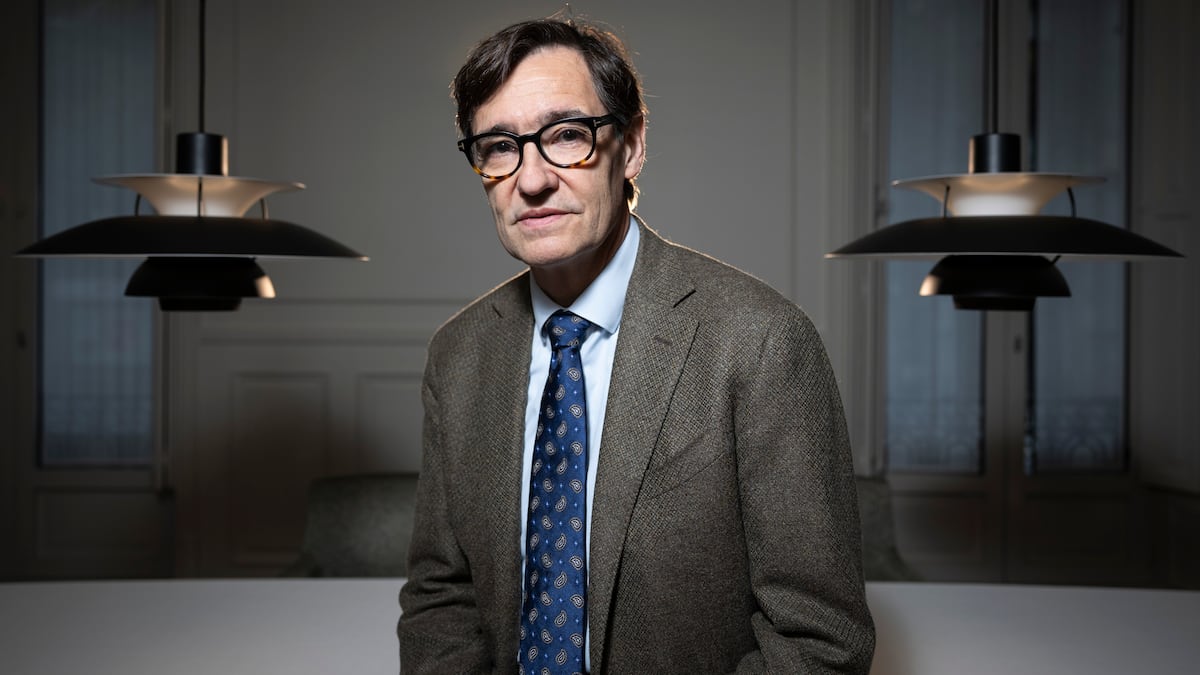Meeting of the parties and the Government, in the Parliament, to set a new electoral date Massimiliano minocri / EL PAÍS
In two weeks it will be a year since the
president
Quim Torra, now disqualified, declared the Catalan legislature and the relationship with his ERC partners canceled, and announced an election that he never called.
Since then, the Government has lived in constant political instability, with the coronavirus in the background.
This Friday he learned that he will prolong this situation for another 15 weeks.
The Government agreed with most of the parties, except the PSC, to postpone the elections from February 14 to May 30 due to the situation of the pandemic and the increase in infections.
The change of date makes it difficult to process some budgets for this year.
Initially, the PSC opposed any change in the electoral date, although at the last moment it opened to take the elections until March, a postponement deemed insufficient by the rest of the parties.
The elections in Catalonia had been called automatically on December 21, after the deadlines of the Parliament to elect a new head of the Government after the disqualification of Torra.
The decision of the independence movement to leave its chair empty to denounce the supposed repression of the State ended up adding more waiting time to an already dying mandate, in which not even the management of the coronavirus crisis has prevented Junts per Catalunya and ERC from having a truce in their struggle for political hegemony.
The date of February 14, in the middle of winter, was problematic due to the uncertainty generated by the health emergency.
But the scenario ended up being worse than expected and the campaign and electoral day ended, according to the evolution scenarios of the pandemic, overlapping with the peak of infections and tension in the ICUs of the third wave of covid-19.
The Government questions the postponement of the Catalan elections
The Catalan Government anticipates that the peak of the epidemic will arrive shortly before the start of the electoral campaign
In December of last year, the Government was in favor of agreeing with the parties on the conditions for holding the elections and created a study table with the parties that have parliamentary representation.
At that forum arrived, last Monday, the forecasts of the evolution of the virus and the conflict did not take long to jump.
The formations and the Executive led on an interim basis by Pere Aragonès (ERC) promised that an eventual postponement would only respond to health criteria.
Even this Friday the mutual accusations were repeated that it was the electoral calculation that moved the decisions.
Aragonès, always with an eye on what happened in Galicia and the Basque Country last year - the elections were also postponed there due to the pandemic - insisted on the need to reach a "consensus" with the other parties to try to shield at least politically a calendar change that the electoral law does not include.
This agreement, however, goes against the calculations of both, starting with the Republican Esquerra itself, which sees how Junts and the PSC approach it in the latest polls.
The most uncomfortable position is that of the Catalan socialists, who since last Monday were left alone defending that the elections were held as planned.
The Minister of Health and head of the PSC, Salvador Illa, had said that he would leave the ministry once the campaign began and now he sees that period of time extended, with the wear and tear that it may entail and the loss of impact due to his recent candidacy.
The rest of the formations criticized the PSC for ignoring the epidemiological recommendations, but Iceta believes that they are the ones who are wrong in the analysis.
"No solvent expert signs forecasts for more than four or five weeks," he said this coming to justify that it was better to vote before Easter than in May.
"Be that as it may, the dynamics of change are unstoppable and Illa's victory will occur on May 30 as it would have occurred on February 14, if not with more margin," added Iceta, just two days after the Government be alerted to the lack of legal guarantee of a date change.
Broad consensus
The Government finally managed to show this Friday a broad, but not total, consensus - something that happened in Galicia and the Basque Country - to move the elections.
The new date is justified for two reasons.
First, because by the end of May a vaccination range will be guaranteed in Catalonia of between 9% and 30% and climatic conditions that make it difficult for the virus to spread.
On the other hand, the 54-day minimum period established by electoral regulations is met.
Despite the fact that the date is already included in the decree that the Catalan Executive approved this Friday, the elections have not yet been formally called, something that will happen in April.
The PSC does not close the door to appeal judicially on a calendar change that it does not see as a mere modification of the date but as "a change in the rules of the game."
As already happened in the Galician and Basque cases, the Government chooses to return to the starting point of the entire electoral process and, for example, the candidatures will have to be formalized again and the census updated.
The Executive wants some good steps to be taken but to allow, for example, that new candidates can be presented.
The Electoral Board will have to decide what these changes could be.
The
commons
wanted the elections to be held on May 16, but their leader, Jéssica Albiach, said she shares the new calendar.
The PP, for its part, did not object to the date, but asked that the necessary measures be taken so that they can vote on May 30.
"It was an aberration to hold the elections and the campaign with crowded ICUs," defended the leader of Ciudadanos, Carlos Carrizosa.
"We must find ways to ensure that the new date is firm," added Junts deputy Elsa Artadi.
The road to a new effective government in Catalonia will be long and could last until the summer.
Nothing guarantees that the partisan struggle does not lead to a blockade and the need to repeat the elections.
Junts and ERC blame each other for wanting to agree with the PSC, while the commons and PDeCAT reject the broad front proposed by the Republicans.
Carles Puigdemont's formation insists that they only want a "clearly independentist" government.
Aragonès already warns that this year the resources allocated to the coronavirus will be equivalent to those spent in 2020. The acting Government will be forced to pull credit modifications until the end of the mandate.
The Generalitat usually prepares the figures for the accounts for the following year in September.
By then, the new Executive will begin to roll.
There are many more issues to unblock: from the renewal of the Catalan Audiovisual Media Corporation to, for example, the election of the Síndic de Greuges (name of the ombudsman of the autonomous community of Catalonia).

/cloudfront-eu-central-1.images.arcpublishing.com/prisa/UPFISKVF45EAWGE24CB2WRKILE.jpg)

/cloudfront-eu-central-1.images.arcpublishing.com/prisa/YFOE7FF5EFC7NP5O2DLUMEU6EI.jpg)





/cloudfront-eu-central-1.images.arcpublishing.com/prisa/OTWB63YVDRNKAQLEH7S4FTFBNI.jpg)